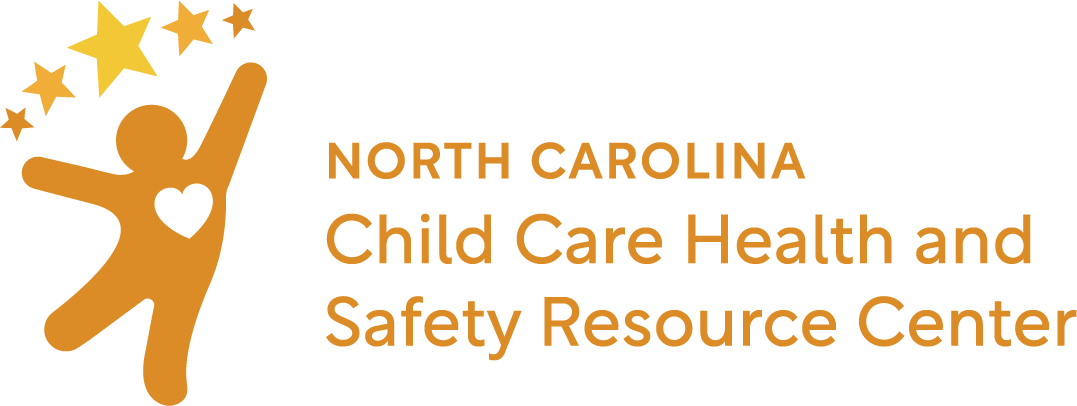Infant and Child Social and Emotional Wellbeing
Child Care Health Consultant Competency 11: Social and Emotional Well-being
(Source: Early Childhood Learning & Knowledge Center, Child Care Health Consultant Competencies)
CCHCs assist programs to support children’s executive functioning, self-regulation, and developmentally appropriate relationships with other children and adults. A CCHC also:
- Reviews written discipline policies and observes procedures to ensure they align with positive guidance principles
- Identifies factors that enhance children’s social and emotional well-being
- Matches programs with community resources, including mental health consultation
The CCHC connects programs to resources and strategies to assess and appropriately address social and emotional and behavioral concerns. A CCHC also:
- Helps identify possible underlying health problems that contribute to social and emotional and behavioral issues and assists with appropriate referrals
- Works with staff to develop a method for observing and documenting information about social and emotional and behavioral concerns
- Supports staff in finding compassionate ways to share information about social and emotional and behavioral concerns with families
- Helps programs access mental health consultation to prevent suspension and expulsion of children with challenging behaviors
- Connects programs with mental health consultants who can address the effect of adverse childhood experiences (ACEs) on children’s wellbeing and who can provide guidance on trauma-informed practices
Find a CCHC in your community.
Featured Initiatives and Resources:
 This initiative offers services to identify, prevent and modify challenging behaviors with a goal of reducing the expulsion rate of NC child care centers.
This initiative offers services to identify, prevent and modify challenging behaviors with a goal of reducing the expulsion rate of NC child care centers.
Healthy Social Behavior Specialists are housed in the regional child care resource and referral agencies and serve all 100 North Carolina counties.
 NCIMHA is dedicated to the healthy emotional, cognitive, and social development of children prenatal to five years old. They work toward a future in which every infant, toddler and young child in North Carolina grows up within nurturing relationships, positive experiences and supportive environments.
NCIMHA is dedicated to the healthy emotional, cognitive, and social development of children prenatal to five years old. They work toward a future in which every infant, toddler and young child in North Carolina grows up within nurturing relationships, positive experiences and supportive environments.Additional Resources
- 2013 North Carolina Foundations for Early Learning and Development
The revised Foundations spans birth to age 5 and includes goals, developmental indicators, and strategies in five developmental domains. - Bright Futures in Practice: Mental Health
This resource addresses the mental health of children in a developmental context. Included is information on early recognition and intervention for mental health problems and disorders and a tool kit for health professionals and families for screening, care management, and health education. - Center for Early Childhood Mental Health Consultation
The Center gathers in one place a wide range of materials that address the needs of Head Start staff and families for practical guidance on effective ways to promote young children’s social and emotional development and reduce challenging behaviors. - Center for Parent Information and Resources
This is a Resource Collection on Trauma-Informed Care. - Center on Social and Emotional Foundations for Early Learning (CSEFEL)
CSEFEL is focused on promoting the social emotional development and school readiness of young children birth to age 5. - Harvard University’s Center on the Developing Child – Early Childhood Mental Health
The mission of the Center on the Developing Child is to drive science-based innovation that achieves breakthrough outcomes for children facing adversity. - Head Start – Mental Health
The website provides social and emotional development resources from the Head Start, Early Childhood Learning and Knowledge Center. - Helping Foster and Adoptive Families Cope with Trauma
This resource provides further information for foster and adoptive families, including how to identify trauma in young pre-verbal children. - Pathways.org
Pathways outlines developmental milestones that children typically reach from birth through their third birthday. Milestones are sorted by age and topic (motor, sensory, communication, and feeding). - The National Child Stress Traumatic Network (NCTSN)
The NCTSN website provides an overview of early childhood trauma between the ages of 0 and 6 years and resources for parents and caregivers. - Zero to Three
Zero to Three provides information for parents and professionals to promote the healthy development of infants and toddlers by supporting and strengthening families, communities, and those who work on their behalf.

